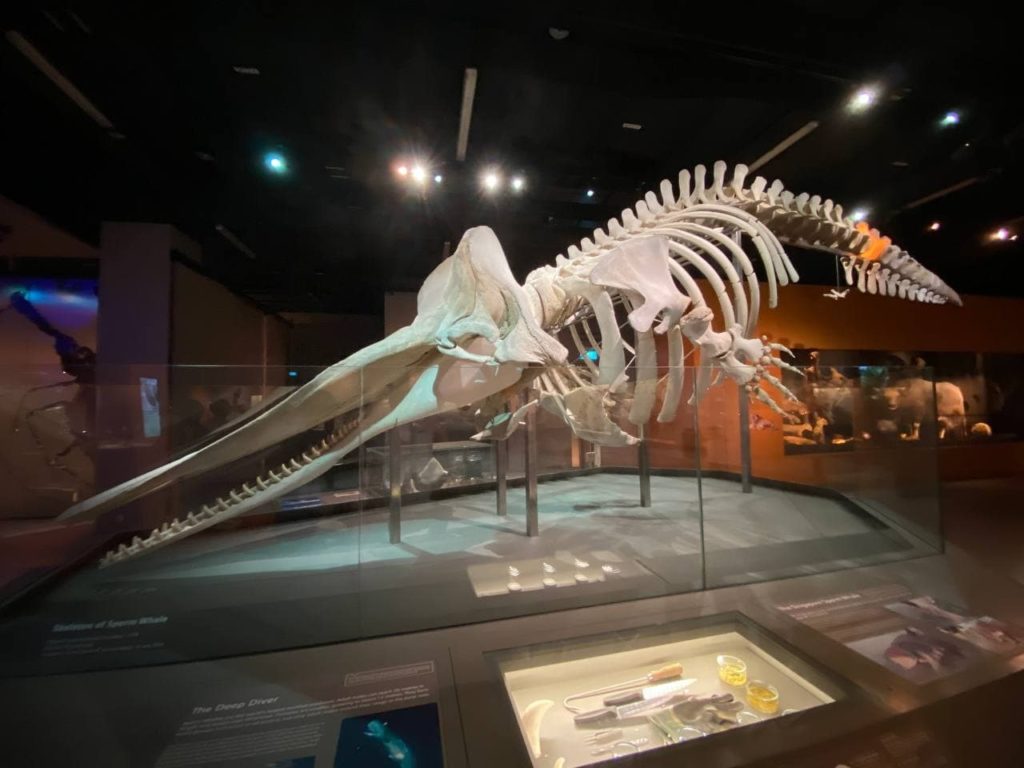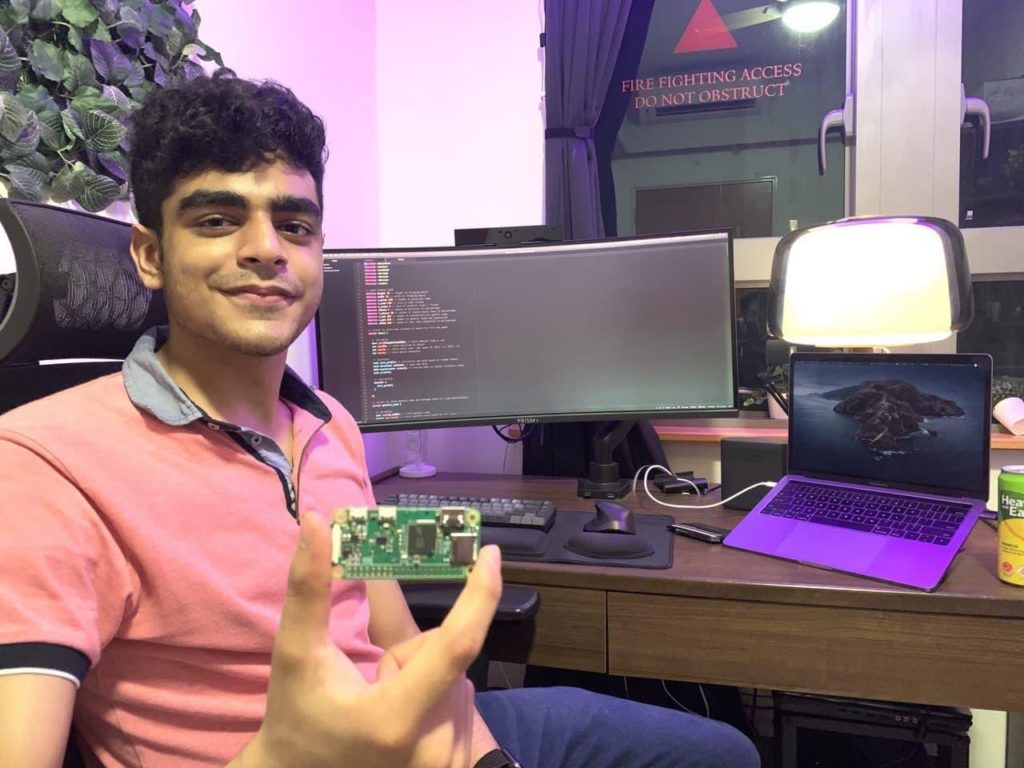Museum trips and experiential learning in Scientific Inquiry
 The sperm whale exhibit at the Lee Kong Chian Natural History Museum. Image provided by Billy Tran.
The sperm whale exhibit at the Lee Kong Chian Natural History Museum. Image provided by Billy Tran.
The Lee Kong Chian Natural History Museum is a 10-minute walk away from Yale-NUS College and admission is free for students. Yet, if it were not for the Scientific Inquiry 1 course, James Soh (Class of 2024) would not have thought of visiting it.
“For the museum assignment, we had to explore how fossils contribute to our understanding of evolution. We went around observing similarities and differences in the bone structures of monkeys, whales, dugongs, and more,” said James. He also took a myriad of photos to present to his class in the following seminar.
Students take Scientific Inquiry 1 in their first year as part of the Common Curriculum, a set of courses that all Yale-NUS students study in their first two years, which introduces them to foundational concepts and modes of inquiry across the humanities, social sciences and natural sciences. Unlike a typical science module, Scientific Inquiry 1 and 2 is a two-semester course, which seeks to help students develop an appreciation of the epistemology and philosophy of science. In Scientific Inquiry 1, students consider how scientists think by looking into the topic of evolution. Areas of study also include fossils, DNA, genetics, and statistical data analysis.
“I’m really glad the course gave us an opportunity to go outside the classroom. It was interesting to see how our readings and Canvas quizzes translated into real-life,” said James. His favourite exhibit was a large, 10-metre long sperm whale skeleton. “The whale had a bone isolated from the rest of its body. Apparently, this small bone linked whales to land-dwelling mammals and was evidence of evolution.”
The assignment also encouraged students to develop an appreciation for local museums. Senior Lecturer of Science (Life Sciences) Phillip Johns, who is the facilitator for Scientific Inquiry 1, said, “I think it’s really important that students view museums and zoos as more than just the stuff of primary school field trips. I wanted them to think about local fauna like whales and dugongs in the context of both vestigial traits and convergence.”
The museum trip was not the only experiential component of the course. For another assignment, students were tasked to design a genetic algorithm using a web tool to simulate the process of genetic evolution. Aditya Singhania (Class of 2024) took home the prize for best algorithm.
The assignment allowed him to combine his interest in computer science with the study of genetics. “I didn’t find the solution myself, I made a program to find a solution for me. My program essentially “mutates” the algorithm, just like how our genomes mutate in real life,” Aditya shared, noting the parallels between his computer simulation and genetic evolution.
 Aditya and his Rasperry Pi prize. Image provided by Billy Tran.
Aditya and his Rasperry Pi prize. Image provided by Billy Tran.
As a reward for designing the best algorithm, he received a Raspberry Pi computer. “Admittedly, I wouldn’t have been as motivated if it weren’t for the prize. But I’m glad I spent the time because I learnt a lot more about the assignment and why it was assigned,” he said.
Students shared that the museum trip and experiential assignments were some highlights of the course. Nicol Yong (Class of 2023), now a second-year student, feels that these were great collaborative learning experiences and appreciates how scientific thinking complements her study of the social sciences. “I have found that the scientific method is a very useful lens to look at many different contemporary issues. For example, it really is useful to keep it in mind when learning more about climate change or environmental issues,” she shared.
In their second year at the College, students take Scientific Inquiry 2 as part of the Common Curriculum. They build on the skills and concepts learnt in the previous course, such as identifying and interpreting scientific evidence, while shifting the focus to the pressing issue of climate change. The topic also allows students to explore the relevance of scientific knowledge in our modern world, especially in terms of social practices and policy-making.





